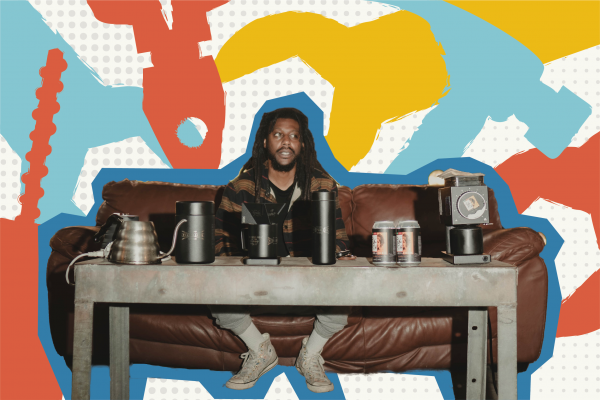A few months ago, I had what non-religious people would call a “moment of clarity,” and what evangelicals would call “God speaking to me” — and this one true voice of believers and skeptics alike told me: “Just cool it with the social media already.”
Not exactly the message I was expecting, but I went with it. In the wake of an unusually difficult winter, I knew that what I needed most during the Lent season was time to myself, alone and quiet. And I knew that was going to be a lot easier without the noise and clutter of hundreds of friends bouncing around in my head.
Like most people, I had joined various social media communities for reasons both benign and self-serving. I signed up for Facebook and Instagram innocuously, to keep in touch with close and distant friends. But my Twitter account was a creation of hubris — numerous friends told me that my brand of rapier nerd-wit “deserved” Twitter fame, and for some reason, I believed them. (Insert self-deprecating and ironic link to my Twitter handle!) And regardless of motive, all three accounts devolved into an addiction, to the instant gratification of feeling superficially known and appreciated, and — especially in the case of Twitter — the gnawing hunger for more follows, more likes, more attention. Hours of any given day could go by while I scanned my social media accounts, looking for approval and not realizing where the time had gone.
On Ash Wednesday, I typed out goodbye posts and away messages, took farewell photos, changed my notification settings, and deleted all three apps from my phone. It would be cliché to say that I felt free, but it would also be true, so I’ll say it: I felt free.
Prior to this year, I had occasionally reduced my Facebook usage for short stretches throughout my 10 years of use. But I had never gone without all of my social accounts, and I’d never quit cold turkey.
Turns out, Lent without social media has been revolutionary.
While I am (of course) a unique and special snowflake, I hope that what I’ve learned can be of use to the diverse and equally-unique-and-special Lent-observing community more broadly. So here's what I, a former social media addict, have learned from my almost-40 days on the wagon.
1. Social media really does encourage shallow interaction.
This may be obvious to many of you. But I had thought, for years, that it was a technophobe’s myth — that it may be true for some, but for me, Facebook gave the tools I needed to have deep, meaningful connections with more people than ever before. This did not turn out to be true for me. Instead, repeated Facebook use created impossible expectations that I tried and failed to meet every single day.
Social media, across platforms, creates the illusion that you can maintain hundreds or even thousands of connections at a meaningful level. And that’s a dangerous illusion for someone like me: an extrovert who, underneath her professionally detached exterior, secretly wants to be everyone’s friend. Removing myself from social media meant realizing that not only had I been tricked into believing I could be close friends with 500 people — I had also tricked myself into thinking I enjoyed it, instead of realizing that the emotional labor inherent in that constant dance was unsustainable. As it turns out, I love being a private person who is selective in their interactions, and it’s important to me to maintain a distinction between friends and friendly acquaintances. It means I have more time to dedicate to the people I care about most. My world has benefited from being smaller, less public, and more intimate.
2. Social media is a problem, but so is your sad, sad brain.
Giving up social media doesn’t mean giving up wasting time. We all need something to distract ourselves from ourselves, because being alone with our own thoughts is hard. I did try to be a bit more mindful — I took up the habit of drinking tea before bed, and consciously tried to slow my life down in other ways — but I also allowed myself to avoid being alone with my thoughts in alternate ways like reading, listening to podcasts, and exercising more. I’d like to think my methods of distraction were somewhat more productive than the social media alternative. But to an extent, distractions are distractions. Needing them is unavoidable in a world defined by instant gratification.
3. Performance is fun! And addictive. And morally gray.
Background: I have always loved to perform. I play several instruments and sing in a choir, I habitually insert one-liners into most interactions, and my karaoke-and-air-guitar rendition of “Welcome to the Jungle” by Guns N' Roses is the stuff of legend. [Editor’s note: This is true.]
Now, take someone like me, introduce them to Twitter, and sit back and enjoy how they rationalize their Twitter narcissism as being “for the benefit of others.” Social media is designed to take the benign version of social showmanship and warp it into something toxic. Giving up social media didn’t actually make me feel better about my own love of performance, because it left me questioning whether or not any performative tendencies, regardless of level of air guitar shredding, are acceptable. But at least most offline performative tendencies involve time spent with other people with whom I’ve already built relationships. Now I can safely say that if I want to indulge my love of performance, it would probably be better to practice my mandolin for once, rather than beg for attention and validation on Twitter.
4. Successfully navigating the modern landscape requires social media. And not just for news.
You don’t have to be on social media to live a happy and informed life in 2018. Honestly, based on my experience giving it all up, I could make a good case for abolishing it altogether. That said: If the majority of the world depends on social media to share information, knowledge, talent, and perspective at all levels (and increasingly, it does), it’s difficult to replicate that through other means.
For the most part, I didn’t mind the extra effort of being offline: for me, giving up social media meant establishing a boundary between myself and digital drama, whether said drama involved friends, family, celebrities, or politicians. But what I missed most was the event-sharing. I missed parties, clothing sales, and happy hours. I almost missed my friend’s charity 5K. Try as I might throughout Lent, I couldn’t figure out an easy way to stay in the loop when “being a part of the community” is so often synonymous with “being on social media.”
I haven’t decided yet whether my Lenten discipline will continue after Easter. I am not sure what kind of person I would become over time without the behaviors I built around my social media addiction. The only certainty — since the question of how to be an engaged person in a social media-free world remains unanswered — is that if I reduce or eliminate my time on social media, I will be choosing a more difficult and less-traveled road. One that will leave me both healthier and more secluded from the outside world — for better or for worse.
May this insight be useful to you all. And may you feel minimally conflicted when you share it on Facebook.
Got something to say about what you're reading? We value your feedback!







